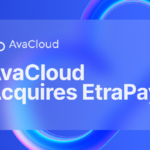The Central Financial institution of Venezuela (BCV), Sudeban, Sunacrip and Sunaval can be the regulatory our bodies.
The present hyperlink between the banks will not be direct, however there are associations with fintech corporations.
Venezuela is escalating its adoption of cryptocurrencies, however what’s being talked about as we speak about USDT, for instance, or the enlargement of providers resembling Crixto or Kontigo, have been preceded by regulatory advances on methods to file a tax return with digital belongings or setbacks concerning the suspension of Bitcoin (BTC) mining.
This coming and going linked to digital belongings has a brand new chapter as we speak, though not in follow, however within the potentialities that this opens up. It is about how Banking in Venezuela may instantly method cryptocurrencies. It’s undoubtedly a subject that arouses curiosity, though the dialog remains to be very early.
The origin of the controversy started when Rodolfo Gasparri, president of Conexus, an organization specialised within the processing of digital transactions, revealed that his group was engaged on a platform that will enable nationwide banks to function with digital belongings. That is framed, nonetheless, in the truth that in Venezuela there may be nonetheless no regulation on the topic.
With this panorama as context, voices like that of economist Asdrúbal Oliveros emphasize that the huge adoption of USDT in Venezuela and its Doable hyperlink with banks inexorably requires a strong regulatory frameworkable to uniting conventional monetary establishments with the world of cryptocurrencies.
Oliveros, managing accomplice of Econanalítica, is optimistic about Conexus’ initiative to develop a blockchain-based software for banks to custody USDT and different cryptocurrencies. Nonetheless, its studying is preceded by establishing clear guidelines. When consulted by CriptoNoticias about this level, he commented:
I believe it is fascinating that that is introduced up. In fact it has operational challenges, however above all regulatory ones. Banking in Venezuela is a strongly regulated system, not solely by one group however by a number of, on this case the Central Financial institution of Venezuela (BCV), the Superintendency of Establishments of the banking sector (Sudeban) and the Nationwide Superintendency of Crypto Belongings (Sunacrip); First you must regulate.
Asdrúbal Oliveros, Venezuelan economist.
Past the providers provided by the cryptocurrency platforms Crixto and Kontigo, corporations licensed by the Venezuelan State to function within the nation, Oliveros is a type of who believes that this area of interest ought to increase even additional, together with nationwide banking.
The specialist considers that increasing this supply, together with banks, wouldn’t solely give depth to the ecosystem, however would instantly profit customers, facilitating safer entry and environment friendly to digital belongings in a rustic the place USDT already acts as a refuge towards change volatility. However he emphasizes, “the regulatory framework should first be outlined.”
This emphasis on regulation resonates with the sandbox proposed by Conexus, a managed testing atmosphere that could possibly be supervised by the BCV and Sudeban, designed to detect flaws and measure transaction volumes with USDT or different digital belongings.
Oliveros warns, nonetheless, that for extra formidable alliances—resembling people who may happen between exchanges and banks—“the regulator has to point out willingness,” because the financial institution can’t act with out the express consent of those organizations.
There may be regulation for cryptocurrency exchanges, not for banking
The a number of laws of digital belongings in Venezuela are various and undergo a Constituent Decree on Cryptoassets and the Sovereign Petro Cryptocurrency, Constituent Decree on the Complete System of Cryptoassets, Fiscal and Tax Laws or the legalization of Bitcoin mining. There are additionally provisions for exchanges and guidelines ruled by the Monetary Motion Job Drive (FATF).
Past all this legislative articulation, present legal guidelines don’t set up a hyperlink with the nationwide monetary system and digital belongings instantly. One thing that can be highlighted by the popularizer Aníbal Garrido, professor and director of the Academy of Blockchain, Buying and selling and Cryptoactives on the Andrés Bello Catholic College (UCAB).
I sit up for all the combination processes. Now we have a regulation that at this second will not be so permissible within the case of integrating the financial institution as an energetic actor, which isn’t the case with change homes. The information (from Conexus) appears optimistic to me, nonetheless, it have to be valued and measured in its appropriate dimension.
Aníbal Garrido, Venezuelan bitcoiner and professor.
Based on the tutorial, Venezuela can’t implement these “processes in a single day; vital preparation is required from a technological perspective.”
Oliveros and Garrido agree that the difficulty remains to be in a really early part and that There may be nonetheless an extended approach to go earlier than banks supply cryptocurrency providers. such because the USDT stablecoin and even Bitcoin.
Past this actuality, the compulsory query is what varieties of providers may Venezuelan banking supply with cryptocurrencies if it had the mandatory laws? Garrido responds:
“The varieties of companies that may be achieved are extensive starting from custody, remittances or dispersion of funds.” For Oliveros, a door would open for mechanisms for cryptocurrency wallets, new foreign money allocation mechanisms, integration with fee mechanisms resembling playing cards and even transfers with stablecoins.
For now, for banking in Venezuela to take a number one function in its reference to cryptocurrencies, It’s essential to first go down the trail of regulationthis might take months or years, one thing that may depend upon how essential this adoption alternative is seen within the nation.
_____________________________________________________________________________________
Reporter Jesús Herrera contributed to this text from Caracas, Venezuela.









